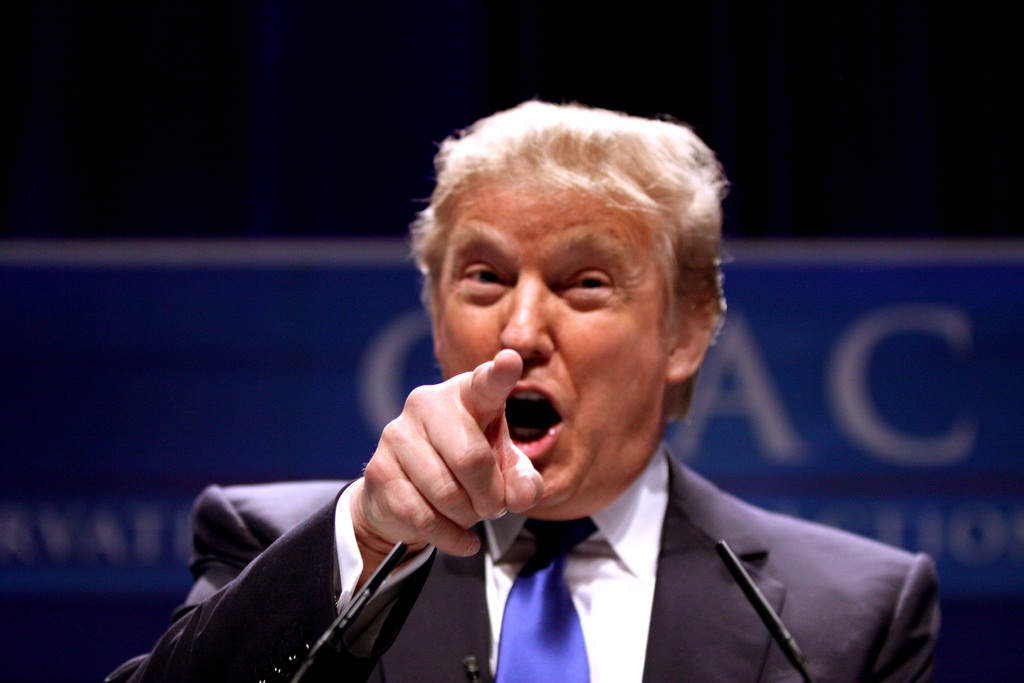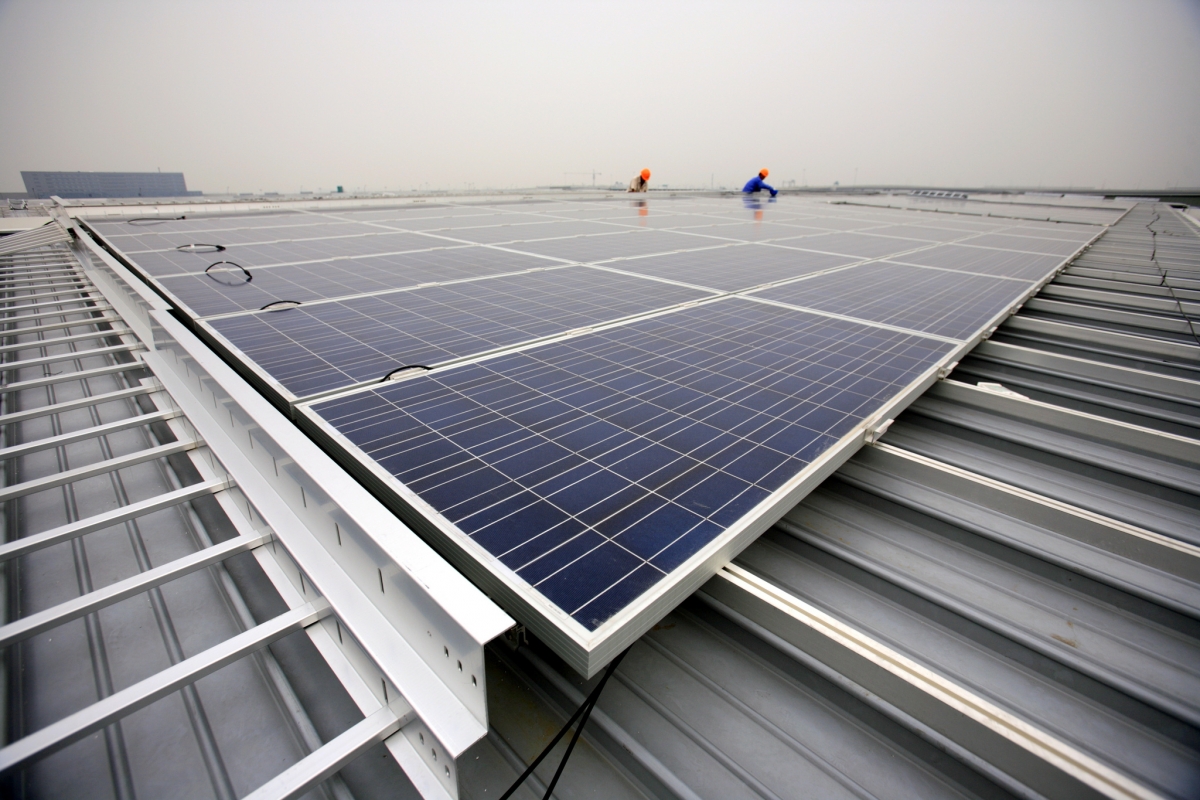The UN climate talks seemed to grind to slow motion this week with the much-hyped, much-anticipated arrival of U.S. Secretary of State John Kerry.
Kerry arrived late for his scheduled talk, striding in with that celebrity dignitary air, surrounded by a posse of private security guards and long-lens photographers. An inexplicable apocalyptic plume of black smoke rose from the Marrakechi cityscape behind him.
From along the corridors of the conference venue adoring bystanders yelled, “We love you Secretary Kerry!”
I swear I saw Kerry’s teeth glisten like a Disney princess as he smiled and waved.
The moment was perfectly American, unfolding like a scene from a high-budget Hollywood film. In this conference mashup of international attendees it really did feel like the whole world was watching.
But they weren’t.
Secretary John Kerry at the UN climate talks in Marrakech, Morocco. Photo: Carol Linnitt
In fact, the whole of the giant complex making up the 22nd Conference of Parties seemed only to gaze up at the commotion before carrying on with its work.
At most international diplomatic events, the U.S. takes up a disproportionate amount of the sociopolitical bandwidth.
With the recent dramatic unfolding of the U.S. election — and the elevation of sideshow performer Donald Trump to one of the most powerful thrones in the world — this is truer than ever.
The reverberations of Trump’s win are still being felt in Marrakech where delegations from some 200 countries are deliberating the details of the Paris Agreement, a historic international treaty to limit global warming to as close to 1.5 degrees Celsius as possible.
Trump, who said he believes climate change to be a Chinese hoax, has vowed to pull out of the Paris Agreement and unleash America’s fossil fuel corporations on the nation’s remaining hydrocarbon deposits.
Here’s Trumps 100-day energy action plan:
Trump’s 100-day action plan for energy #climate #cop22 “cancel Paris Climate Agreement” and stop payments “to U.N. global warming programs.” pic.twitter.com/p0BvVXzyrf
— Graham Readfearn (@readfearn) November 9, 2016
Many responded by announcing the end had come, the planet will fry and we’re all screwed.
As a Canadian watching the U.S. election furor descend into ever-deeper madness from north of the border, I’ll admit it was hard to ward off the end-times thinking.
Yet arriving in Marrakech after extracting myself from my self-referential cesspool of a Facebook feed, 
In an interview at the climate talks Erik Solheim, executive director of the UN Environment Program, said the leadership gap left in America’s wake will simply be filled by other countries.
“The small talk here in Marrakech was, of course, completely overshadowed by the U.S. election, as everyone knows,” Solheim said. “But I’m very optimistic that whatever happens in the U.S., China and others will provide the global leadership that we need.”
China, responsible for 25 per cent of the world’s emissions while also being the world’s largest solar energy market, seemed eager to wave its diplomatic finger at the U.S. It backed up the gesture by announcing a new climate partnership with the European Union.
Lutz Weischer, leader of international climate policy at Germanwatch, said the EU/China collaboration is a game changer. He suggested Trump may have inadvertently strengthened the international community’s resolve.
“The Chinese have made statements that read to me they believe this is a global challenge…indicating the EU and China can move forward on this together,” he said. “Trump was sort of a wake up call to everybody. Countries seem even more committed than in the past.”
Solar installation in China. Photo: The Climate Group via Flickr.
Australia, Pakistan, Italy, Saudi Arabia and the U.K. have all ratified the Paris Agreement since Trump’s election, putting an end to speculation the U.S. shakeup might cause a climate treaty exodus.
Mohamed Adow, climate lead from Christian Aid International, said it’s a significant sign that even a post-Brexit U.K. isn’t abandoning the agreement.
“During a week in which the international climate negotiations have experienced the shock of the U.S. elections, this backing by America’s oldest and strongest ally shows that support for global action to tackle climate change remains resolute,” he said.
“If the election of Donald Trump as President of the United States can’t shake countries’ resolve then nothing will.”
Beyond pure political and economic leadership, many have expressed concern that the real loss will be felt in the absence of America’s moral leadership. But Weischer doesn’t see it that way.
“The strongest moral leadership in this process has always come from the vulnerable countries,” he said. “And not just in providing that leadership but in actually committing to do more.”
Bill Hare, climate scientist and director of Berlin-based Climate Analytics, said Trump’s surprise victory did dampen the mood in Marrakech — for a day.
“People bounced back quickly, thinking ‘well, okay, we can also do tough.’ “
New climate possibilities are opening up in new ways, Hare said, “because the geopolitical and technological dynamics have changed.”
Slowing emissions in China are the most obvious example.
“From our technical analysis, we’re beginning to think China has peaked its carbon dioxide emissions from fossil fuels,” Hare said.
“It’s the second or third year in a row where carbon dioxide emissions have reduced and new policies announced by China should continue that trend.”
Earth to America: Trump’s Not the Centre of the Universe (Or the Climate) https://t.co/hNspoMRXIx #cdnpoli #ClimateAction
— DeSmog Canada (@DeSmogCanada) November 18, 2016
But Hare said the real news story is coming out of India, which is responsible for 6.96 per cent of the world’s total emissions and has millions of residents still without power.
For several years the world has been left to wonder if India’s solution to its energy poverty would be coal or cleaner alternatives.
Hare said news that India cancelled four ultra, mega coal plants —“which are as bad as they sound” — is a positive sign, as is the country’s massive growth rate in renewable energy.
“I think that’s the biggest story on the planet right now: will India make that transformation away from coal towards renewables bringing hundreds of millions of people out of energy poverty in a clean and sustainable way?”
“That would be the biggest transformation the world has seen should it come about,” Hare said.
“So despite the depression that many people feel about the Trump election, and rightly so, in the climate policy space we see a lot of potential for things to move forward rapidly despite the turbulence from the U.S. political system.”
Liz Gallagher, senior associate with the UK-based climate analysis group, E3G said Secretary Kerry’s remarks to conference attendees may have provided some measure of comfort by emphasizing the role of pure market forces in deciding the fate of the climate.
Over 360 businesses and investors have also called on Trump to stick with the fight against global warming, saying it simply makes good business sense.
The Paris Agreement calls for a worldwide decarbonization by 2050, something that is going to require what Trump might term ‘tremendous’ amounts of renewable investment dollars.
“That’s the paradox of what president-elect Trump is proposing: he’s going backwards on policy that could make it harder for the U.S. to retain or grow its place in the world,” Hare said. “The economic benefits will be lost to the United States.”
Weischer had a similar sentiment: “This is the first time the federal U.S. government has actively decided to take the U.S. out of an emerging industrial revolution.”
Emissions in the U.S. will likely be affected by Trump’s victory but it’s not yet game over for the universe.
So maybe all that apocalypse talk emanating from the U.S. is really about something more specific: in the coming clean energy rapture, America is the one who risks being left behind.
Subscribe to our newsletter
Stay up to date with DeSmog news and alerts







